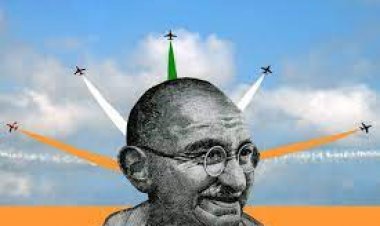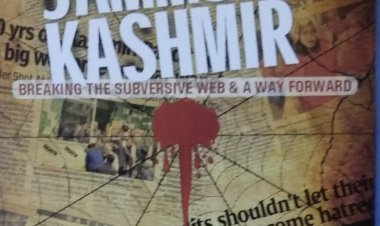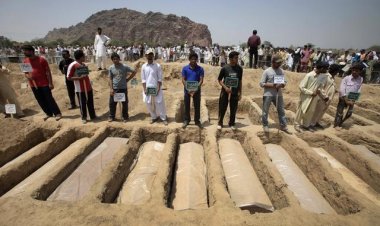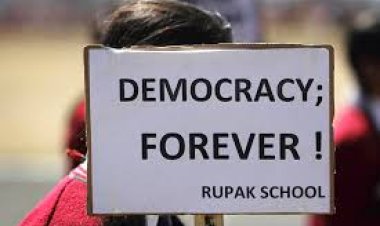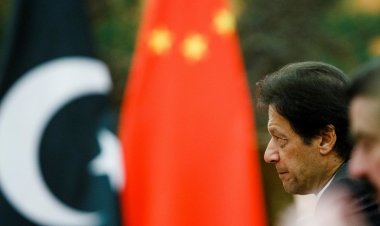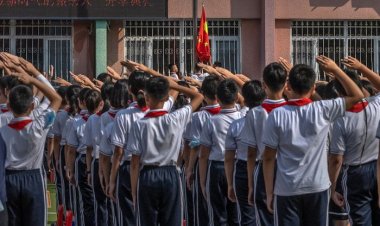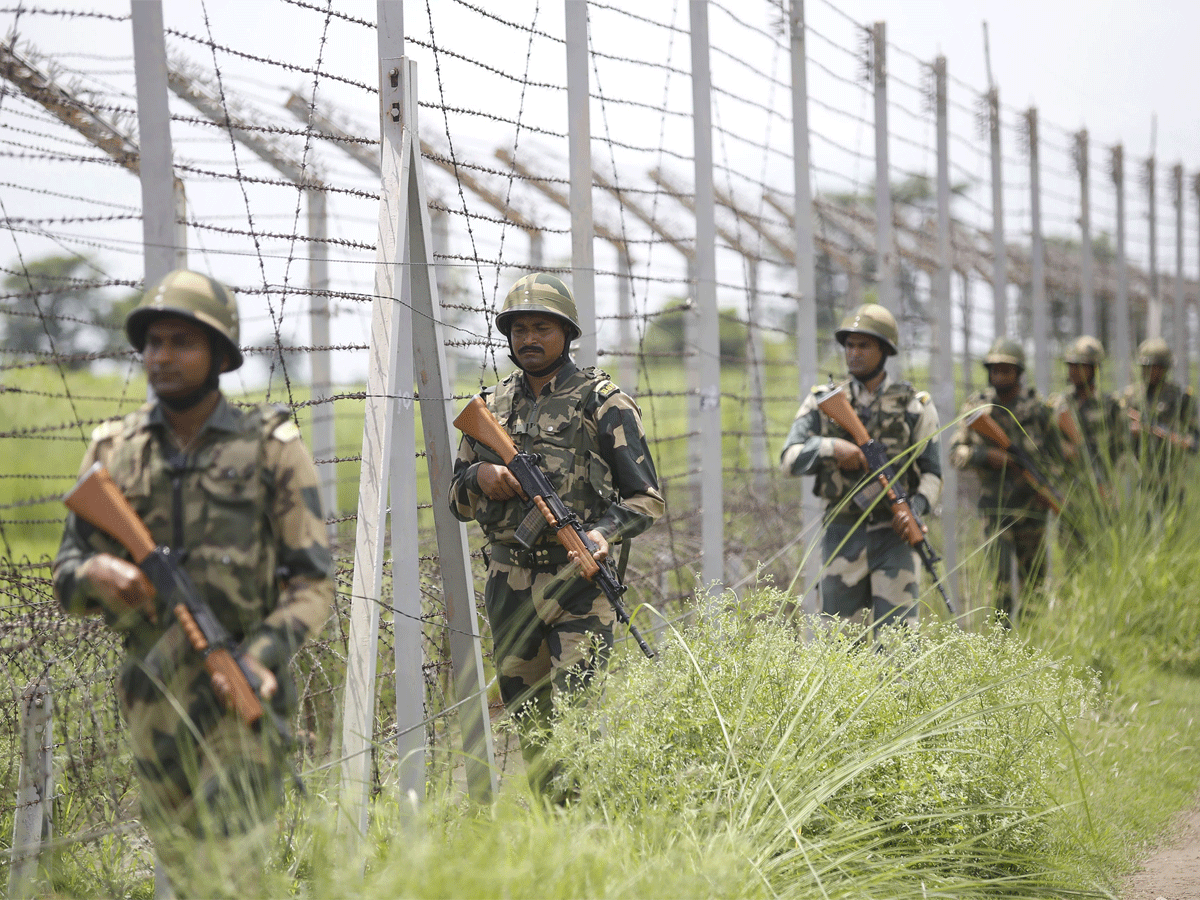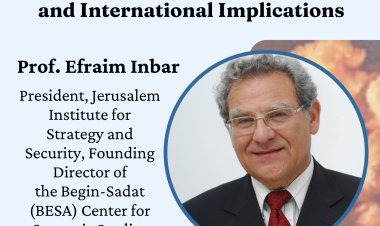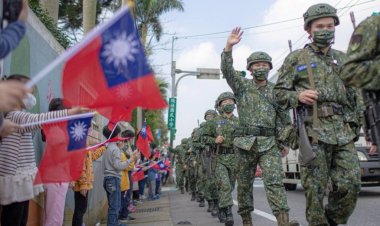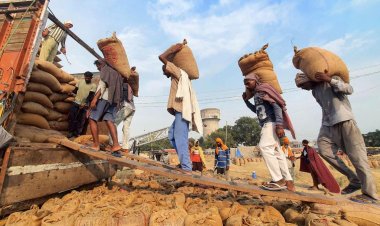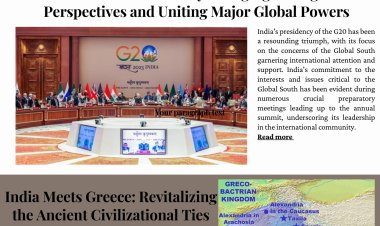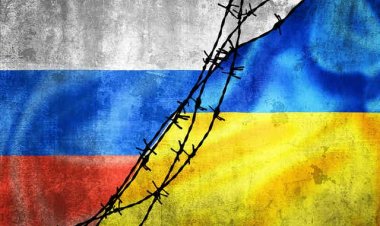Discussion on "Minorities in Pakistan: A Life Under Seige"
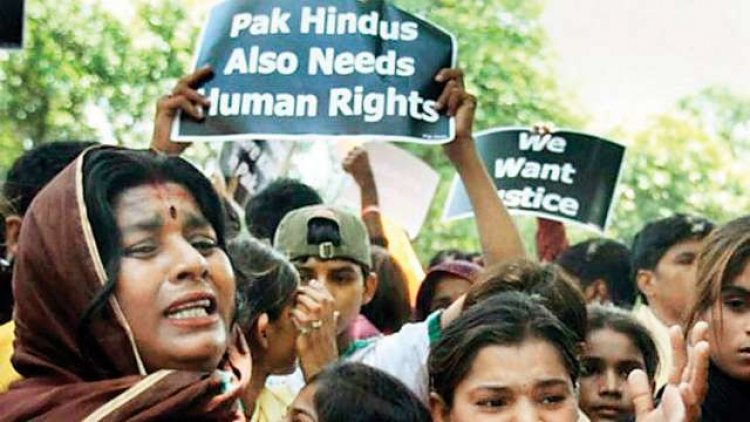
Event Report
Webinar No. 2
By Usanas Foundation
Amidst the ever-worsening condition of minorities in Pakistan and their numbers exponentially falling down, Usanas Foundation organised a webinar on the topic "Minorities in Pakistan: A Life Under Seige" on 19 June 2020. The speakers of the webinar were: Joyeeta Basu, Editor, The Sunday Guardian; Savio Rodrigues, Editor-in-Chief, Goa Chronicle and Managing Director and CEO, Kaydence Media Ventures Pvt Ltd; Dr. Omendra Ratnu, ENT Surgeon and Founder, Nimittekam; Amanjeet Singh, President, Sikh Youth of Jammu and Kashmir; and Dharmendra Singh Rataul, Former journalist with Indian Express and Education Management Expert with Khalsa College, Amritsar. The event was moderated by Abhinav Pandya, the CEO of the Usanas Foundation, and hosted by Bipindra NC.
Opening the session, Dharmendra Singh Rataul talked about his experiences of working as a reporter with the Indian Express, covering Indo-Pak border issues. He said that discrimination in Pakistan poses a serious human rights threat to minorities living there. He highlighted that in 1947, the minority population of Pakistan was 23%, which has now fallen to a minuscule of 3-4% as Sikhs, Hindus, Shias, Ahmadiyya, and Christian communities have been facing discrimination at multiple places and levels. Not only Hindu temples, but Ahmadiyya mosques are also set ablaze and plundered. Since its inceptions, persecution of minorities has been the modus operandi of Pakistan. Mr. Rataul also mentioned that the Pakistanis have not classified themselves into majority and minority but as Muslims and Non-Muslims.
Highlighting the severity of the overbroad blasphemy laws of Pakistan, he said that such laws do not exist even in Arabian countries. Minorities in Pakistan are severely charged on minor allegations, leading to punishments like the death penalty. Blasphemy laws, in most cases, are used to fulfill a personal vendetta. Victims are immediately presumed guilty, even without proper investigation and holding the trial under jury. He further argued that intense migration has been a major result of persecution and quoted the example of the Pakistani Ahmadiyya community settling down in the Indian state of Punjab and elaborated that hundreds of lives are lost every year in personal as well as organised attacks. Women are the most vulnerable group in Pakistan. They force abductions, rapes, forced conversions, forced marriages have become trends. Instead of checking the persecution of minorities, the Pakistan government has rather chosen not to speak. Attacks on minorities have led to the condemnation of Pakistani policy at the global level to some extent. However, human rights violations in Pakistan have not been raised at the global level at a major level. Pakistan’s foreign policy has always been India centric. We see no other issues being raised by Pakistan at the global platform except India related issues. We have hardly seen any mention of minorities in it. Talking about the current situation, he said, “During the Covid pandemic, we get to come across discrimination in food distribution and health services against the minorities.”
Hitting the Khalistanis, he said that the Khalistan lobby is very very strong, backed by the ISI and the Pakistani military. The power of money comes into play. There are certain elements in the US, Canada, UK who are playing into the hands of Pakistan and ISI. It has made inroads into universities, Bollywood, media, and elsewhere in India. There is a strong voice against Khalistan in the Sikh community, but they are comparatively low voiced as compared to the high tone voices of the minuscule population supporting Khalistan.
The address by Joyeeta Basu revolved around the CAA and sufferings of the minorities along the Eastern border, i.e., Bangladesh and said that we also need to talk about the CAA if we are talking about the persecution of minorities in Pakistan. We should not also forget Bangladesh, ‘east Pakistan’ as well. We can not see Pakistan’s issue in isolation. Beginning with this, she presented her arguments by summing them up into four major points. She firstly talked about the situation of minorities in Pakistan and highlighted that in the census of 1998, the population of minorities was less than 4%. She added that they are suffering discrimination from an overwhelmingly Sunni population, in all spheres, including discrimination at institutional and societal levels. According to The Hindu Council, at least 1000 women from the Hindu community are being abducted and forcefully married every year, mostly in Sindh. The kidnapping of traders and businessmen keep happening in Balochistan. The situation is so pathetic that parents even give Muslims name their children in order to save them. The Section of 295B and 295C of the Pakistani Penal Code provides that defiling the pages of the Quran invites the death penalty and derogatory remarks against the Prophet invites death sentence, respectively. She discussed the Asiya Biwi case and the burning down of a couple on the basis of vigilante justice. She highlighted that in 2017, the Hindu marriages, for the first time, were legally recognised by the law in Pakistan. The Pakistan Hindu Council claims that 5000 minorities from Pakistan, especially Hindus, migrate to India every year.
Secondly, she put forward her views on the CAA and said that unfortunately, this narrative has been so badly misinterpreted and sent across the world a message that India is disenfranchising the Muslim population in the world. However, the actual idea is that many people from six religions, because of religious identity have been persecuted in Pakistan, Afghan, and Bangladesh can seek refuge in India. CAA is a special regime to give them citizenship by the process of naturalisation after staying in India for the last five years. The communication skills of this government are so bad that they did not make it clear to the international as well as the domestic community that this is a step to make things easy for certain communities only when they fulfill certain qualifications and it is not a free pass to anybody! It is not about denying citizenship to any Muslims who are coming in. The whole fundamental idea behind the act is that Muslims do not face persecution in the said three countries, so they have not been brought under the ambit of the CAA.
Connecting dots, she moved to NRC and Bangladeshi infiltration and argued that Hindu Bengalis/Bangladeshis believe that since religion was the basis of partition, and Muslims got their own country, so why should not Hindu migrants get certain benefits and concessions in India? Why should India not accommodate those stateless people? She said that the Supreme Court mandated the process of NRC with the idea that the Assamese should be able to preserve their land, language, and culture from the influx of Bangladeshi migrants in the state. In Assam, the local Assamese population fears that due to the rapid demographic change taking place, they would very soon become a minority in their own state. From CAA, the Hindu Bangladeshis have become eligible to settle there. This is what is bothering the Assamese. They want Hindu as well as Muslim Bengalis from Bangladesh to leave the state. The NRC process was foolproof to ensure the preservation of the culture. This had a reflection in the Assam elections and will have an impact on the upcoming Bengal elections as well. CAA will have a major impact on Bengal elections. Hindus from Bangladesh settled in West Bengal will have a huge huge impact as they will decide the results of the election, seats on seats.
Fourthly, she talked about India’s possible response to the minority issue coming in from Pakistan and added that the CAA was made into an issue of disenfranchisement of the Muslim community in India. The government that was so efficient in handling the 370 abrogation issue so efficiently, did not see the kind of propaganda coming in. Consequently, India got branded as an islamophobic state. We were not able to put things into the content. She also explained that the difference between CAA and NRC is the difference between economic refugees and religious refugees.
Later responding to a question, she apprehended that the majority community is going to become a minority in India, especially in areas in Assam and West Bengal. People are not even allowed to worship their goddess. The language and demography are changing. Even ISI agents have become active there. Bengal would be going to the Kashmir way, sooner or later. The Centre should play a dominant role in the federal structure to control the situation in these states.
Dr. Ratnu talked about his grassroots initiatives towards the Hindu minorities of Pakistan. His organisation acts as an interface between Pakistani minorities and India. To date, the organisation has been able to get 2000 Indian citizenships to Pakistani minorities and thanked the Ministry of Home Affairs to authorise DCs of Jaipur, Jodhpur, and Jaisalmer to recently entitle rights to grant citizenship to Pakistani minorities. He said that currently, we are living with two lakh Pakistani Hindu migrants in Rajasthan. In 1971, lakhs of Hindus facing persecution from Chachro in Pakistan moved into Rajasthan. 1.8% is the total number of all the Hindus and Sikhs, besides 1.5% of Christians, taking the total no of minorities to 3.5% in Pakistan. He strongly argued that it has been the combined failure of Sikh and Hindu leadership to expose Pakistan on the international stages and alleged that the Hindu and Sikh leaderships are busy fighting each other for breadcrumbs and that’s the statement of the problem.
“CAA was not only a piece of the extremely compassionate and intelligent act but it also outsmarted the radical Jihadi ecosystem. We have been out-funded and outsmarted by massive Jihadi machinery. CAA/NRC is just an extension of the Citizenship Act in 1955 - that is it! Most importantly, 80% of Hindu refugees coming out of Pakistan are Dalits.Dalit leadership has failed to understand these issues. The Dalit sahodaras should come forward to demolish the idea of ‘MIM-BHIM’ combination. In the past three months alone, 500 Hindu families have been converted to Islam as they were deprived of food in the hellhole”, he added.
He also threw light on the Halal economy. It is a Three Trillion economy - being diverted to Jihad and purchasing activists, media and leaders. Hindu side has to establish and promote their own economy. PFI does not depend on the government for anything. They do everything on their own. We need to attack the Jihadi black money. PFI is funded by Zakat. It is a simple game of economics. We need to attack the Jihadi ecosystem politically, economically, morally, theologically, psychologically, and comprehensively.
Savio Rodrigues highlighted the unique trait in India - anything done by the BJP government would certainly be seen as against the interests of the Christain community. Here, artificially-created fear factor comes into play- that the BJP-RSS leadership in India is posing a danger to Christians in India. It is cultivated by the archbishops and fundamentalists in India, just before elections. But there are hardly any numbers to prove/substitute this fact. The situation of Christians being in danger is a blatant lie! It is a mindset being created by a group of certain people in collaboration with the Church. He criticised the Catholic Church and said that it took an antagonist stand against the CAA and stood against entitling citizenship to Christian refugees by India.
Talking about nation-building, he said that a nation is above all! No religion comes above the nation, not even church! The case on Asia Biwi was a false one, and finally, she had to flee to Canada. Any minorities aren’t safe in Pakistan. Hindus, Sikhs, and Christians - all are connected to India. They must realise this. Pakistan is driven by radical Islamic Jihad.
“The most important thing for us to understand is - what is the role of minorities in India? The answer is that every community should contribute towards nation-building. We must create a natural messaging that we all are committed to nation-building. Secularism is the most prostituted word, it is said to mean that it means acceptance of every religion in governance, but in actuality, it is the acceptance of no religion in governance. The messaging should be clear - The minorities in India must stand for the nation-building and minorities in Pakistan must understand that India is a friendly nation and is always standing ready to help them all”, he concluded.
He further said that why has the Centre not moved ahead to ban the PFI, despite the fact that three states have subsequently written to it to investigate the activities of the organisation? Why Ahal-e-Hadis has not been banned in Jammu and Kashmir? The idea is to pressurize the government by forming pressure groups. Talking about the idea of three convictions, he said that one of the things that we lack as a nation is our conviction towards our constitutional morality, conviction towards our Sanatan roots, our conviction that we are better than any other country in this world.
Young Sikh right activist Amanjeet Singh began by mentioning the slogan of Pakistani tribal raiders during 1947-48 massacre of Kashmiri Hindus and Sikhs which said “Muslim ka Ghar, Hindu ka Zar, and Sikh ka Sir”, meaning let us take shelter at Muslim houses, burn down houses of Hindus, and behead Sikhs. He said that more than 30,000-35,000 Sikhs were massacred in Kashmir and cities of Mirpur and Muzafarrabad were cleansed from the Sikh population. Girls were raped and taken away to Pakistan. He talked about specific details of major cases and attacks on Sikhs in Kashmir. In 2000, during Bill Clinton’s India tour, 35 Sikhs were massacred and there are at least 265 incidents of targeted killing of Sikhs in Kashmir to date. Such incidents on the Pakistani side are countless!
He argued that the leaders of Kashmir have been contributing to the Pakistani efforts and hiding beyond the excuse of helplessness due to Article 370 and 35A. There has been second class behaviour with refugees coming in from Pakistan to the Indian side of Jammu Kashmir. No seats have been reserved for persecuted Sikhs in the Kashmir legislature. He also talked about the economic marginalisation of Sikhs minorities across both sides of Kashmir.
Terming the efforts of Imran Khan on Kartarpur Corridor as a nuisance, he said that let not the Sikh community forget the plight of Gurudwara Naluchi Sahib in PoK in which 2,000 Sikhs were set on fire. Attacking Khalistani forces, he said that the international Sikh diaspora should think that how can Pakistan, who has the blood of Sikhs on hand, could work for the welfare of Sikhs? Pakistan is doing this just for the sake of propaganda and money. All fault is of the Sikh and Hindu leadership. They should come forward and stand up. The government should take up their cause, else the remaining Sikhs would be forced to leave Kashmir. The number of Sikhs in Kashmir has reduced to around 30000 then what must be the condition of Sikhs in Pakistan? He urged the Khalistanis to come out from the shackles of the Pakistani ISI and maintain the peace that has recently been established in Punjab.
The opinions expressed in the webinar belong to the panellists and not necessarily to the Usanas Foundation.

